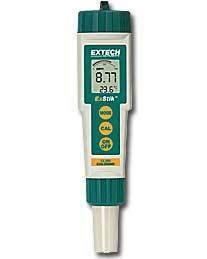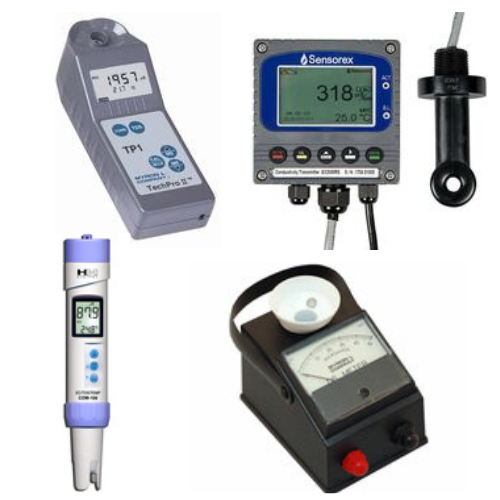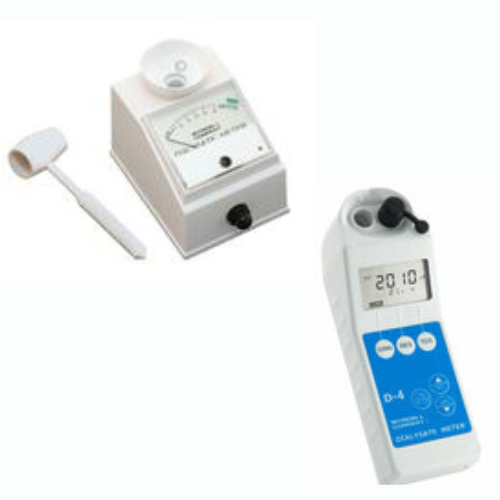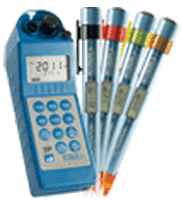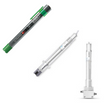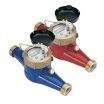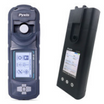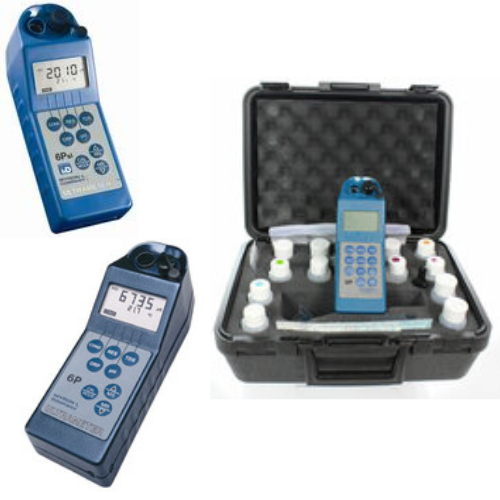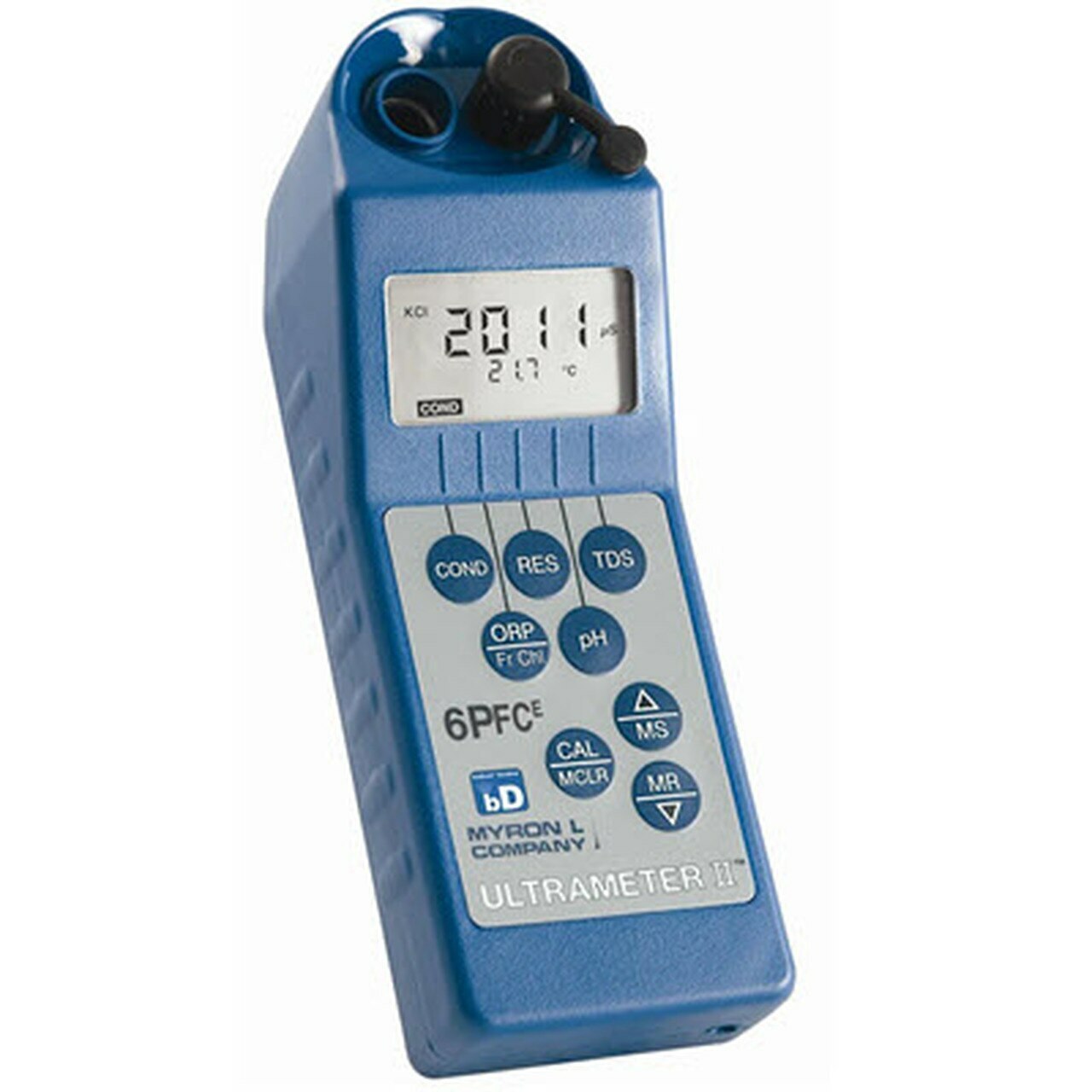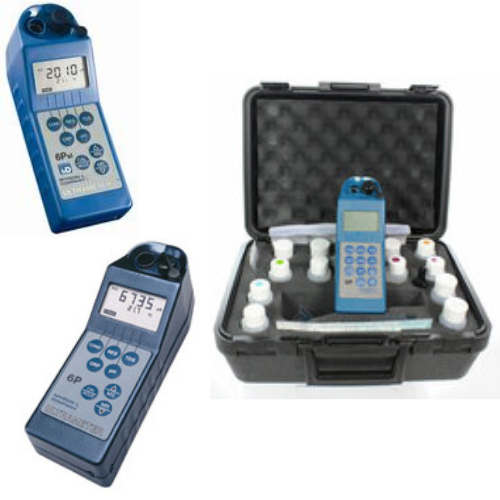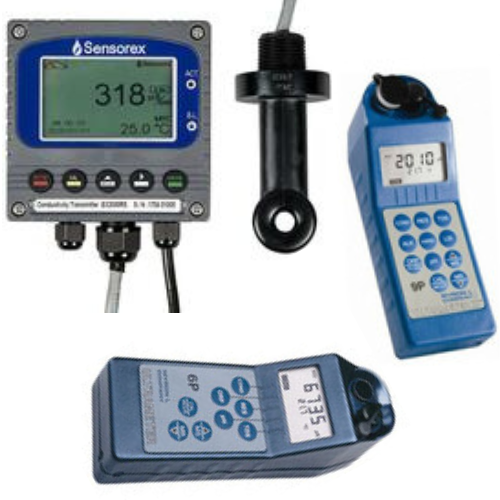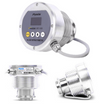SUB CATEGORIES OF Water Quality Meters
There are no products listed under this category.
Being one of the prominent distributors of water treatment solutions, Cannon Water Technology offers high-quality water quality testing meters at the most competitive prices. We have a wide inventory of portable, multiparameter water quality meters and test kits. These meters are proven to assure the highest level of accuracy and reliability. We guarantee the fastest deliveries on all our products.
A Quick Overview of Water Quality Meters
Water quality meters play a vital role in several processing units. These mechanical devices can check water quality based on different parameters, and show reports on a display screen. This informative display can show water parameters with the temperature and other details in a single shot. Water quality testing equipment and test kits available at Cannon Water are well-known for their rugged construction. This makes them ideal for several challenging environments. Our water purity testers are affordable and convenient to use and maintain. They are portable and compact too.
Why Should You Invest in Water Quality Meters
There are countless reasons to invest in our water quality meters. The following are some important ones:
- Aside from periodic checks, if you experience any change in odor or taste of your water, irrespective of its sources, then it’s important to get a quality check done. Our device enables you to know the chemical parameters of water hardness, pH level, chemical oxygen demand, amount of dissolved oxygen, and much more.
- The categories of water quality differ based on its uses, such as for human consumption, industrial and domestic use, and environmental. Our water purity testing meters can serve your purpose without compromising efficiency and accuracy.
- Our devices not only determine these parameters but also raise an alarm if the levels are very high or low. Based on the test reports that show a high level of chemicals, bacteria, or any potential health concern, you must consult an experienced professional at the earliest.
- You must have the appropriate equipment to perform the water quality test, which we can offer. We offer meters with the ability to check multiple parameters with the same device.
- We collaborate with reliable, trustworthy top industry brands. Hence, you don’t have to worry about the product quality. We also have our own manufactured products.
- We offer competitive pricing on all our products.
How to Choose the Right Portable Water Tester
Selecting the perfect water quality test meter depends on your specific requirements. Here are some key factors to consider:
- Measurement Range: Ensure the water testing meter can detect values within the expected range for your application. For example, if testing highly alkaline or acidic water, a meter with an extended pH range is essential. Similarly, for highly saline water, a conductivity meter with a high range is needed.
- Portability and Durability: For field testing, opt for portable water testers that are compact, lightweight, and rugged. Waterproof models are ideal for outdoor applications.
- Accuracy and Sensitivity: High-accuracy meters provide more reliable data. Ensure the water purity tester offers fast response times, especially for real-time decision-making in industrial settings.
- Data Logging and Connectivity: Advanced water quality test meters come with data logging and connectivity features such as Bluetooth or USB, allowing seamless transfer and analysis of data.
- Battery Life and Power Source: Long-lasting battery life is crucial for remote testing. Consider meters with rechargeable batteries for efficiency and sustainability.
- Testing Parameters: Identify the parameters you need to test—pH, turbidity, dissolved oxygen (DO), conductivity, TDS (Total Dissolved Solids), or temperature. Choose a tester that accurately measures your target parameters.
- Ease of Use and Display Features: A well-designed water quality test meter should have a clear digital display, intuitive controls, and an easy-to-navigate interface. Backlit screens are useful for low-light conditions, and real-time readings with stable indicators enhance usability.
- Response Time: The speed at which the meter provides a reading is important, especially in applications requiring frequent measurements. Faster response times improve efficiency and reduce waiting periods when conducting multiple tests.
- Compliance with Standards: If the water quality test is for regulatory or official purposes, ensure the meter complies with standards set by organizations like the Environmental Protection Agency (EPA), International Organization for Standardization (ISO), or American Society for Testing and Materials (ASTM).
Maintenance and Calibration Tips for Water Quality Meters
Proper maintenance and regular calibration are crucial for maintaining accuracy and longevity of water purity tester. Follow these best practices:
Maintenance Tips -
- Clean Sensors After Every Use: Rinse the sensor with distilled water to avoid contamination and buildup. Avoid using tap water as it can leave residues.
- Proper Storage: Store your water testing meter in a clean, dry environment. For pH meters, keep the electrode immersed in the recommended storage solution to prevent it from drying out.
- Check for Wear and Tear: Regularly inspect probes and sensors for any signs of wear. Replace damaged or worn parts to ensure accurate readings.
- Follow Manufacturer’s Instructions: Every water tester has unique maintenance needs. Always follow the manufacturer’s guidelines for cleaning and care.
Calibration Tips -
- Calibrate Regularly: Calibration ensures your water testing meter provides accurate readings. Calibrate before each use, especially when testing critical parameters.
- Use Proper Calibration Solutions: Always use fresh, manufacturer-recommended calibration solutions. For pH meters, use solutions with known pH values like 4.01, 7.00, and 10.01.
- Temperature Compensation: Ensure the calibration process accounts for temperature variations, as they can affect readings. Some advanced meters offer automatic temperature compensation.
- Log Calibration Dates: Maintain a log of calibration dates and results to track performance over time. This helps you identify any recurring accuracy issues.
- Calibrate at Multiple Points: For enhanced accuracy, perform multi-point calibration rather than relying on a single-point calibration. This is especially important for pH and conductivity meters, as it improves accuracy across a wider measurement range.
- Allow the Reading to Stabilize: Wait for the meter to display a stable reading before confirming calibration. Some meters indicate stability with a symbol or beep, while others require manual confirmation.
Applications of Water Quality Meters
Water quality testing meters have gained immense traction and are used across industries. Here is the list of the most significant ones.
- Food and beverages
- Agriculture
- Hydroponics
- Detergents
- Cosmetics
- Water purification plants
- Wastewater treatment
- Municipal water supplies
- Swimming pools and spa
FAQ:
- Why is it important to measure water quality?
Measuring water quality is crucial for various reasons, including monitoring drinking water safety, assessing the health of aquatic ecosystems, evaluating industrial wastewater, conducting research, and ensuring compliance with environmental regulations.
- What parameters can a water quality meter measure?
Water quality meters can measure a range of parameters, including pH, temperature, conductivity, total dissolved solids (TDS), salinity, dissolved oxygen (DO), turbidity, chlorine, ammonia, nitrate, and more, depending on the specific model and capabilities.
- How does a water quality meter work?
The exact working principle can vary depending on the parameter being measured. However, most water quality meters utilize sensors and electrodes to detect and quantify a specific parameter. The meter then provides a digital readout or data output for analysis.
- How accurate are water quality meters?
The accuracy of water quality meters can vary depending on the model and the parameter being measured. It's essential to select a reliable meter from reputable manufacturers and periodically calibrate and maintain the device according to the manufacturer's guidelines.
- How often should water quality meters be calibrated?
Calibration frequency depends on the specific meter and the manufacturer's recommendations. Typically, it's advisable to calibrate water quality meters regularly, either before each use or at regular intervals, to ensure accurate and reliable measurements.

